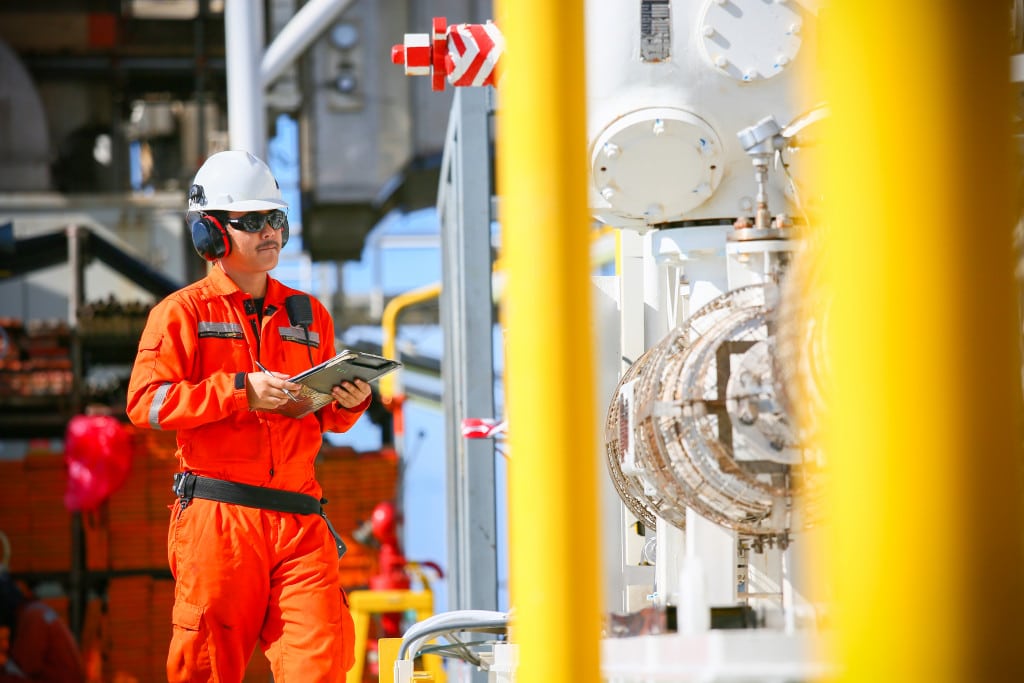- Regular inspections and cleaning are pivotal for the longevity and safety of construction equipment.
- Routine maintenance, prompt repairs, and special care for engine and hydraulic systems prevent costly damage.
- A construction equipment tracking system optimizes deployment and aids in preventive maintenance scheduling.
- Replacing machinery when repair costs exceed value or performance is impacted can be a worthwhile investment.
Given the high demand for these services, starting a construction firm can be profitable. According to a report from IBISWorld, the construction industry in the U.S. has grown by 2.4% to reach a revenue of $1.8 trillion in 2022 alone. This growth is projected to continue in the coming years, offering enticing opportunities for entrepreneurs. Moreover, the potential profitability of a construction business is further supported by data from the U.S. Census Bureau, which reports that the average net profit margin for the construction industry ranges between 2.4% and 3.5%.
However, a construction firm can be an expensive investment, mainly due to the high cost of construction equipment. One excavator, for instance, can cost anywhere between $50,000 and $200,000, depending on its size and features. Therefore, protecting your construction equipment is crucial to avoid costly repairs or replacements that could harm your bottom line. Here are a few tips on how to protect your construction equipment:
Routine Inspection and Cleaning

Regular inspections and cleaning are pivotal in the maintenance and longevity of construction equipment. These practices not only preserve the functional condition of the machine but also enhance safety by averting potential accidents caused by faulty parts.
To conduct an adequate inspection, create a checklist that includes all equipment parts that require monitoring. This could involve checking the oil and fluid levels, examining the condition of hoses and belts for wear and tear, inspecting the tires or tracks for signs of damage, and verifying the functionality of safety systems such as alarms and warning lights.
Cleaning, on the other hand, goes beyond mere aesthetics. Dirt and debris can make their way into various parts of the machine, leading to malfunctions or premature wear. Make it a habit to clean your equipment thoroughly after each use, focusing on areas where dirt can accumulate, like undercarriages, engine compartments, and air filters.
Investing time in routine inspections and cleaning pays off in the long run by reducing the risk of breakdowns, extending equipment lifespan, and ultimately saving costs associated with repairs and replacements.
Maintenance and Repairs
In addition to routine inspections and cleaning, regular maintenance and prompt repairs are essential for protecting your construction equipment. Prolonging faulty equipment can lead to extensive damage and result in costly repairs or replacements. It is, therefore, crucial to address any issues as soon as they arise. Here are a few ways to do it:
Regular Maintenance
Keeping up with scheduled maintenance is one of the most effective ways to protect your construction equipment. Regular maintenance tasks such as oil changes, filter replacements, and lubrication can significantly extend the lifespan of your machinery, reduce downtime, and increase productivity. Always refer to the equipment manufacturer’s maintenance guide to follow the recommended schedule.
Prompt Repairs
Never overlook minor issues or irregularities with your equipment. What may initially seem like a little problem could escalate into a significant repair if left unchecked. Regularly inspect your machines for any signs of damage or wear and address these issues promptly. This proactive approach to repairs can prevent costly breakdowns and downtime in the future.
Engine Care
The engine is the heart of any construction equipment, and as such, it requires special care and attention. Monitor engine performance regularly, checking for unusual sounds, vibration, or changes in power output. Regular oil and filter changes are crucial for keeping the engine in optimal condition. Also, inspect and clean the cooling system regularly to prevent overheating, which can lead to severe engine damage.
Hydraulic System Maintenance
The hydraulic system is another critical component of most construction machinery. Regularly check the hydraulic fluid levels and replace the fluid as the manufacturer recommends. Look for leaks, worn hoses, or damaged seals and repair or replace these parts. Regular hydraulic system maintenance extends its life and ensures the machine operates efficiently.
Tracking and Replacements

Fully functioning construction equipment can be profitable, but using them in projects can affect their condition. As a result, keeping track of their condition and scheduling replacements is essential.
A construction equipment tracking system is an effective way to monitor and manage your machinery. These systems allow you to track the location of your equipment and monitor its usage in real-time, providing valuable data to help optimize equipment deployment and reduce idle times.
Furthermore, tracking systems can alert you to unusual activity, such as equipment being operated outside regular working hours, indicating unauthorized use or theft. The insights obtained from a tracking system can also help you plan preventive maintenance schedules effectively, further prolonging the life of your equipment.
Knowing when to replace parts or the entire equipment is crucial in construction. Generally, if the repair cost exceeds the equipment’s value or the equipment’s productivity is significantly impacted, it’s time to consider replacement. Frequent breakdowns, high maintenance costs, decreased performance, or safety concerns are also clear indicators that a piece of machinery needs to be replaced.
It’s important to remember that while replacing machinery can be a significant upfront cost, improved reliability and performance can often lead to increased productivity and reduced operating costs, making it a worthwhile investment.
Final Thoughts
Protecting your construction equipment is crucial for the success and profitability of your business. Regular inspections and cleaning, proactive maintenance and repairs, engine and hydraulic system care, tracking usage, and scheduling replacements are all essential in ensuring that your machinery operates efficiently and safely. Taking these steps can help you avoid costly breakdowns, extend the lifespan of your equipment, and ultimately increase productivity and profitability. With a well-maintained and protected fleet of construction equipment, you can be confident in taking on the most demanding projects and growing your business in this highly lucrative industry.
